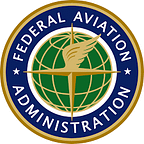Save Story: ‘I’m Really Happy It Went Wrong at Burlington’
An experienced pilot praised the service he received from Burlington Tower controllers when his plane caught fire.
By Jim Tise, FAA Communications
When Israel Cruz saw smoke emanating from the back of the right tire of the Piper Cherokee Six, he instantly conjured visions of Kandahar, Afghanistan.
Cruz, a three-year controller at Burlington Tower, had been an Air Force controller for more than six years, working the towers at Tindall Air Force Base in Panama City, Florida, and Ramstein Air Force Base in Germany.
After leaving the military, he took a contract position at the Kandahar Airport Tower, handling approaches and departures of all types of military aircraft. During that time, he witnessed what happens when brake fluid leaks onto hot tires.
“I’ve worked many hot brakes, brake failures and fires,” said Cruz. “That’s what I thought about immediately” upon seeing the smoking tire.
Everything involving the Cherokee up to that point had been pretty normal. The pilot, Derek Chace, and his father, Drew, had flown to Burlington for their FAA-mandated biannual proficiency reviews and currency checks. Both are experienced pilots with commercial airline backgrounds. Along for the ride was Derek’s 10-year-old son, Hugh.
After Derek and Drew successfully completed their reviews, they prepared to fly home. As Derek Chace lined up for takeoff on the main runway, Hugh noticed wisps of grey smoke coming out of the floor vents. It wasn’t heavy, but it had the distinctive smell of burning rubber. Like Cruz, Chace had served in the Air Force and seen his share of brake fires.
Noticing that “the brakes felt a little softer than normal,” Chace decided to abort and asked for clearance to taxi to the local fixed-based operator.
“This was as routine as it gets,” said Malcolm Latvala, a 13-year FAA controller with more than 10 years working at Burlington Tower. Latvala was working the ground position next to Cruz.
“We work tons of Cherokee pilots,” Latvala explained. “There was nothing unusual about the situation. Pilot aborts happen a lot.” It is the nature of general aviation flying.
Derek Chace concurred, noting that he suffered engine failure on one flight into Burlington.
“God knows how many emergencies my dad had going into Burlington,” he added.
Cruz directed him off the runway, using his binoculars to observe the aircraft. He instructed him to exit a little farther downfield, beyond the main runway and past the main terminal and tower. About that time Chace notified Cruz that the Cherokee’s brakes had failed. Cruz responded that he would notify the airport authority to summon fire-and-rescue equipment.
“The aircraft was past what we thought of as a critical stage,” said Latvala.
With regional jets lined up on the runway for takeoff, Cruz could have easily diverted his attention from the Cherokee. But as Latvala explained, controllers are “taught to watch anything and everything we can get our eyeballs on.”
Cruz spotted smoke from the rear of the right tire. He recalled thinking: “This could turn into a fire and we need to act promptly. It was like split seconds.”
It was a wise decision. “As we looked further, the flames were starting to appear larger,” said Cruz. He rang the crash phone and told the pilot he needed to exit the plane.
Derek Chace remembered hearing Cruz calmly say, “Watch the smoke.” To his experienced ears, Chace knew it was time to react.
“The first thing I heard from Israel was ‘“smoke’,” he said. “Everything immediately got blocked out,” as he killed the engine and instructed his father and son to exit the plane.
“He sounded like he was prepared for something like that,” said Cruz. “He might have been in a little bit of a shock. I tried to maintain a calm demeanor and to let him know we’re here to assist him.”
As Chace exited, he heard the right tire pop. “I’ve seen a lot of brake fires. I knew that wasn’t going to be good.”
The situation appeared dicey as the flames neared the wing fuel tanks. Fortunately, Cruz had already contacted the airport authority, which scrambled fire-and-rescue trucks in just a few minutes to extinguish the fire. There were no injuries.
The plane will need a new right wing, but it will fly again. If Cruz and the fire department hadn’t acted as quickly as they did, the flames might have reached the wing fuel tanks and the entire plane could have been lost.
In retrospect, said Derek Chace, “The way [Cruz] had us taxi back to maintenance brought us by the tower so he could see everything. It was really good thinking on his part to have us taxi by so he could see.”
“People don’t understand how big a player the air traffic controller is,” continued Chace. “I consider them as part of the crew. [They are] another side of the crew that’s outside the cockpit.”
Once the fire department responded, said Cruz, the situation calmed and “everything kept moving and went on from there.” Ever vigilant, he had the presence of mind to scan the runway for any debris the plane might have left behind and that could interfere with other planes’ takeoffs and landings.
“I was impressed with his quick thinking and realizing the situation was in fact an emergency situation,” said Latvala.
“I’m really happy it went wrong at Burlington,” said Chace. “One thing went wrong, but everything that needed to go right after that did.”
Air traffic controllers save lives. The FAA is hiring a new class of entry-level controllers, with an application window from July 30, 2021 to August 2, 2021. Go to www.faa.gov/jobs to learn more about the application requirements and how to apply.
